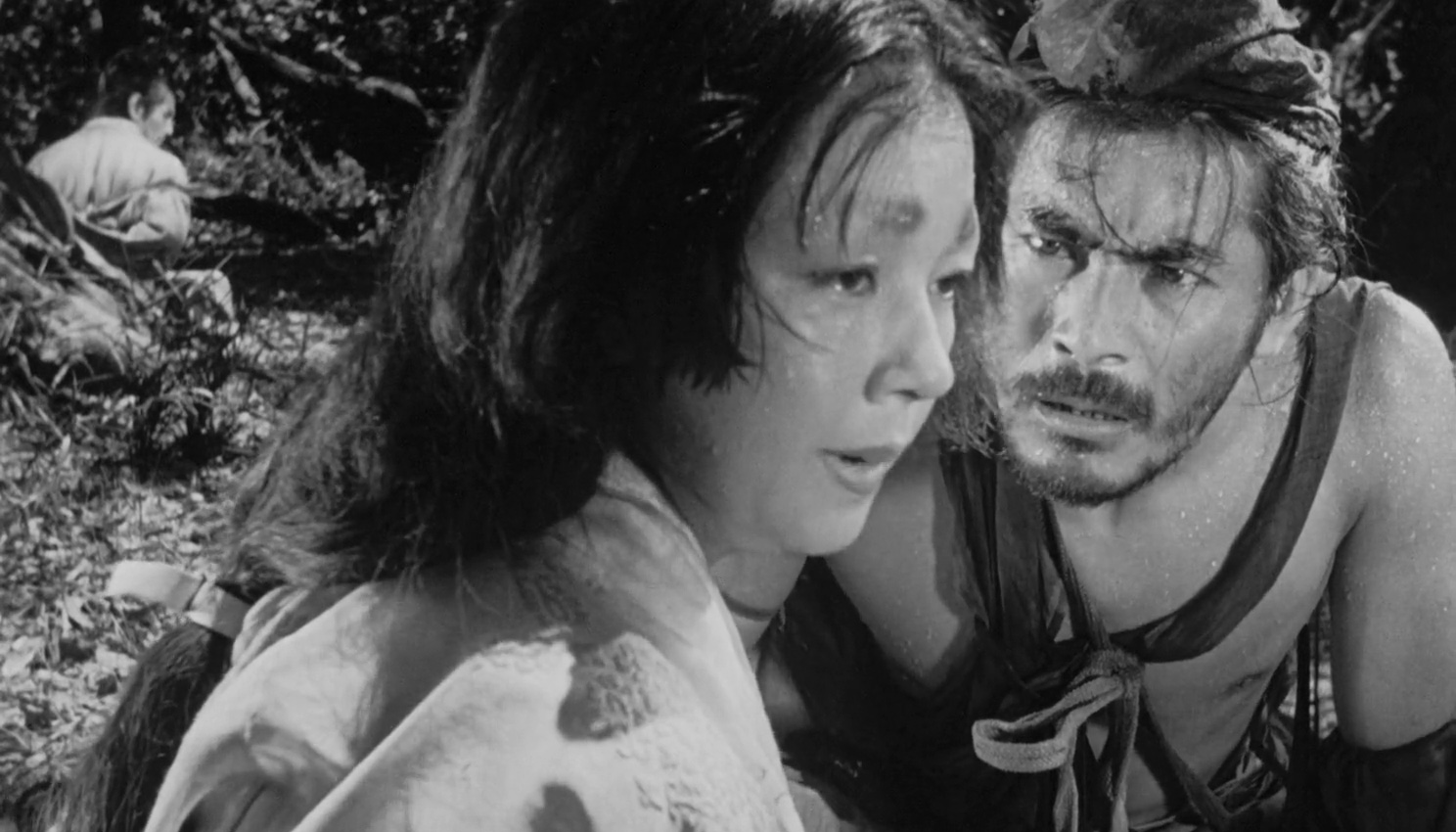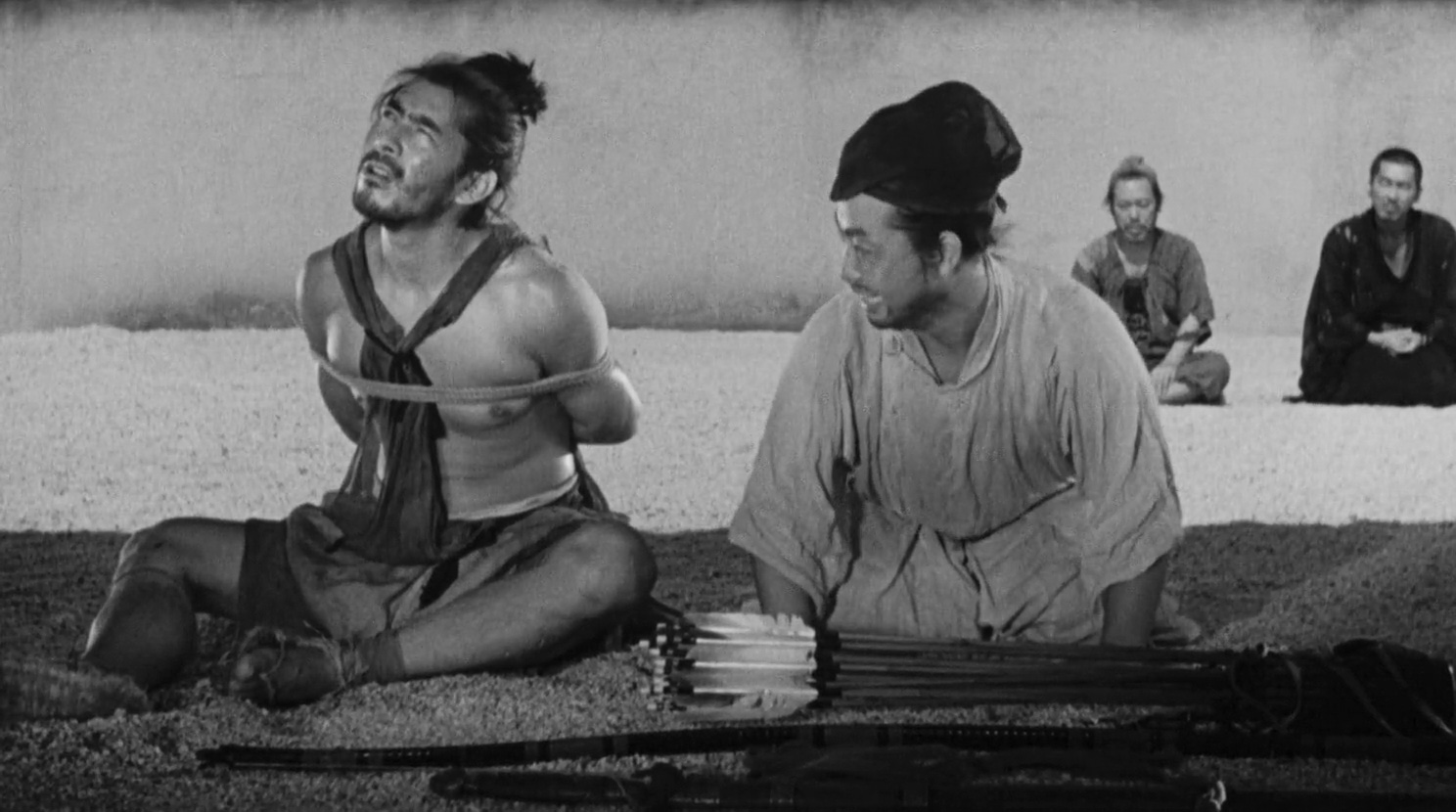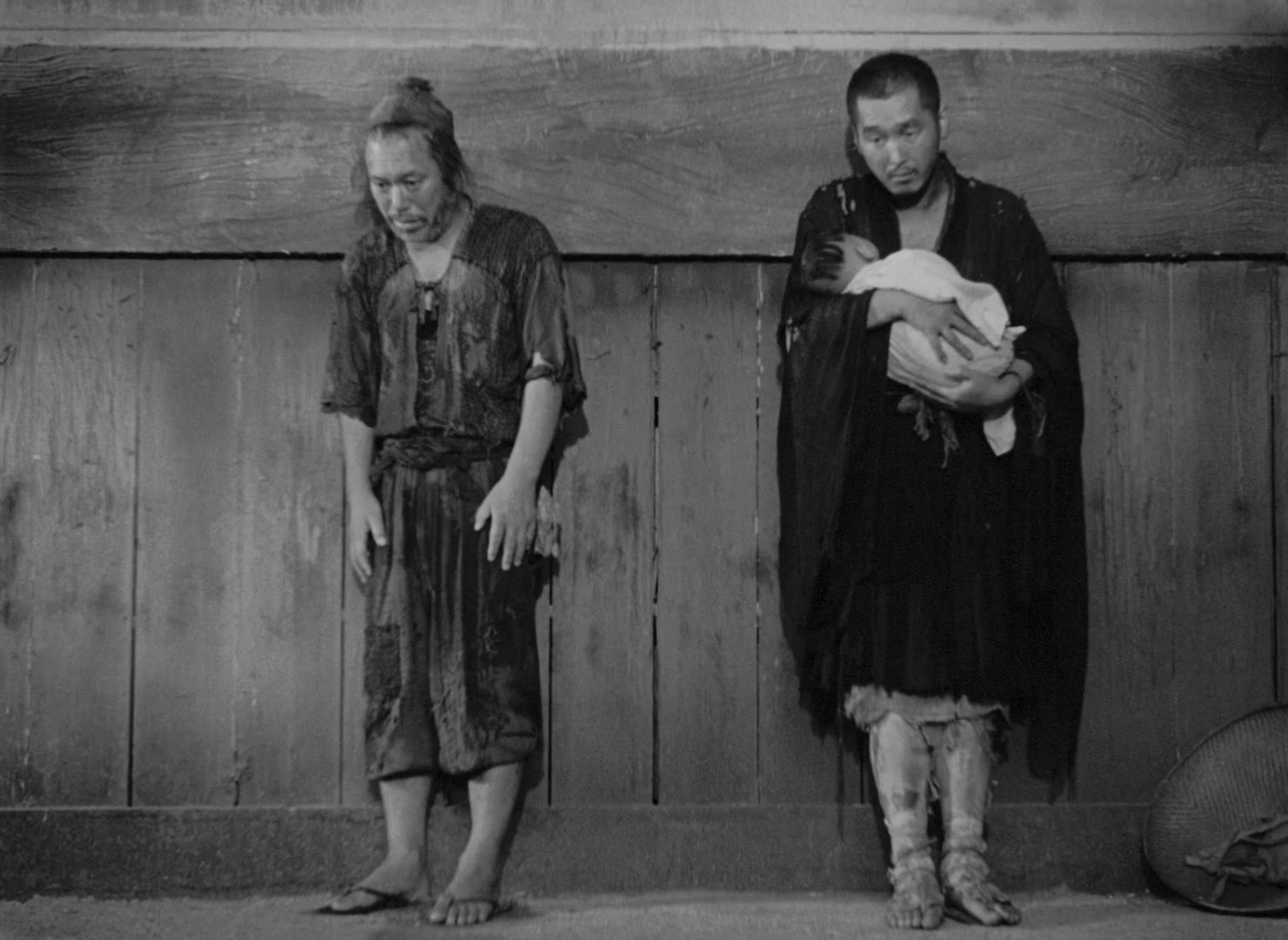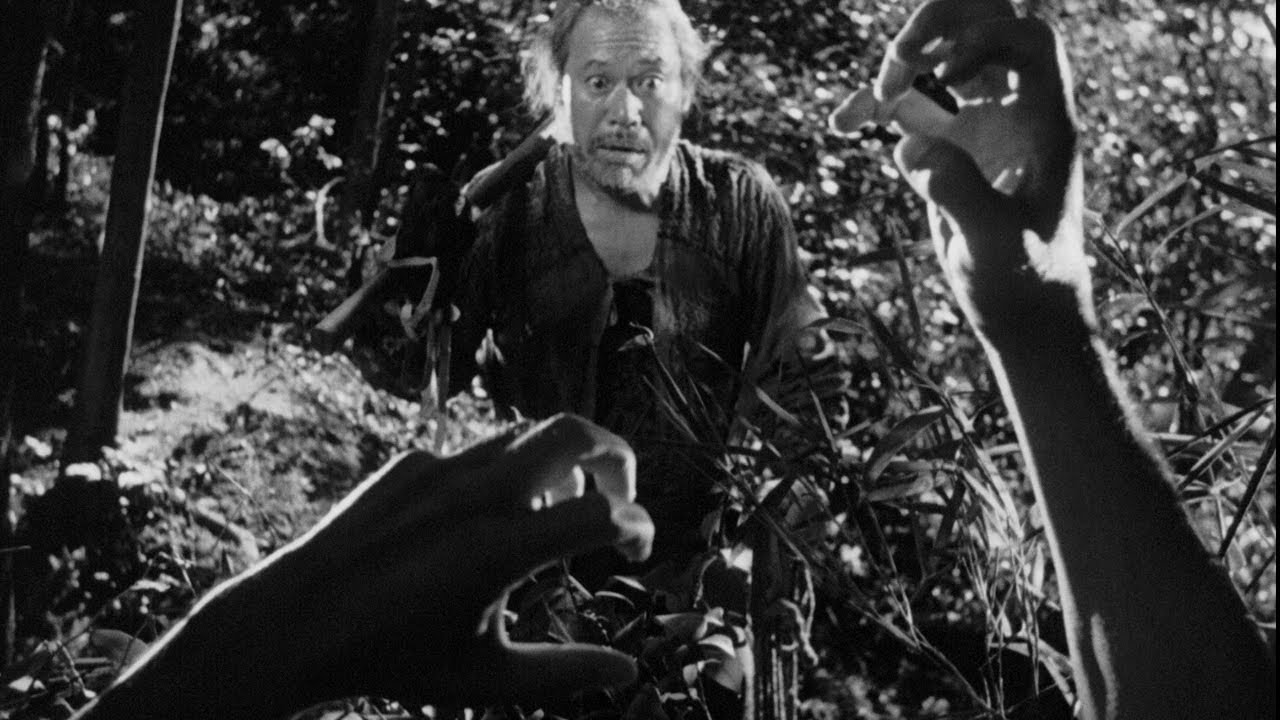How did I first come into contact with the idea of Rashomon? It was definitely a sitcom episode — but which one? Was it the episode of All in the Family that copied it? Or the episode of Everybody Loves Raymond in which Ray and Debra gave different versions of a fight? Or the episode of The Dick Van Dyke Show? Or the episode of CSI (helpfully titled “Rashomama”)? Or the two different episodes of Frasier?
 Rashomon is a movie that comes to the modern media-literate viewer pre-watched. We expect a number of conflicting stories, each of which exonerates the speaker and villainizes everyone else. We — or, at least, I — expect there to be some sort of “neutral” description at the end that shows the real event.
Rashomon is a movie that comes to the modern media-literate viewer pre-watched. We expect a number of conflicting stories, each of which exonerates the speaker and villainizes everyone else. We — or, at least, I — expect there to be some sort of “neutral” description at the end that shows the real event.
That was what the sitcom version of the movie prepared me for. In the sitcom parody, there is always the voice of reason to cut through the distortion at the end. After Dick and Mary give their versions of their fight on The Dick Van Dyke Show, the goldfish finally gives us the real story. After Archie and Michael both give their versions of an Italian plumber and his black assistant — to Archie, the black assistant is a menacing criminal, and to Michael, he’s a submissive figure under the thumb of his boss; these two positions are treated as equal distortions — Edith comes through to give the real story.
 So I was surprised by the reality of Rashomon, which is as much as you can usually ask from a six-decade-old film. I knew, in general, that the film revolved around authorities hearing the conflicting testimony of three suspects in a murder case: a bandit, who attacked the samurai and raped his fiancée; the woman, who was travelling with her samurai fiance; and the murdered samurai, who gives his testimony through a medium. These testimonies are given through the frame of two men, a priest and a woodcutter, who were present at the hearing and describe the events to a third man while waiting for a rainstorm to pass.
So I was surprised by the reality of Rashomon, which is as much as you can usually ask from a six-decade-old film. I knew, in general, that the film revolved around authorities hearing the conflicting testimony of three suspects in a murder case: a bandit, who attacked the samurai and raped his fiancée; the woman, who was travelling with her samurai fiance; and the murdered samurai, who gives his testimony through a medium. These testimonies are given through the frame of two men, a priest and a woodcutter, who were present at the hearing and describe the events to a third man while waiting for a rainstorm to pass.
“It is enough to make me lose my faith in the human soul,” the priest tells the stranger as he begins his story. It’s easy to assume, if you are led by the countless parodies, that the priest is haunted by the narcissism and selfishness of humanity: that each person only sees the tragedy through their own interests. In reality, the film presents something completely different.
The three suspects do not lie to exonerate themselves; in fact, each entirely takes the blame for the murder. In each story, they and only they murdered the samurai (or committed suicide, in the samurai’s testimony). Moreover, there seems to be no reason for them to lie about what happened.
 This changes the entire tone of the work. What we are dealing with is far more than just the evil that people do. We are dealing with the impossibility of collective knowledge at all, of even comprehending what biases there are for which we need to correct. This is the meaning of the priest’s crisis as the film opens: the soul is not even a Protestant source of evil, but is simply unknowable and baffling.
This changes the entire tone of the work. What we are dealing with is far more than just the evil that people do. We are dealing with the impossibility of collective knowledge at all, of even comprehending what biases there are for which we need to correct. This is the meaning of the priest’s crisis as the film opens: the soul is not even a Protestant source of evil, but is simply unknowable and baffling.
There is, ultimately, a partial form of resolution. The woodcutter, it turns out, was a secret witness to the murder, and gives a fourth version. He is found to have left something out, that he stole a valuable dagger. Finally, he redeems himself by rescuing a baby left in the building in which the men are hiding. The priest regains his “hope in the human soul,” and the film can end on a humane note.
One could point out that this final act of charity is not depicted on screen, and that we only get his promise that he is planning on raising the child as his own. But it is more interesting, I think, to point out that it is only by finally getting a clear example of selfishness (the woodcutter stealing the dagger, and, in response, the stranger stealing from the crying baby) that the priest can regain his hope for the human soul (through a clear act of charity in response to evil).
In that sense, Rashomon is more a film about the fear, not of a universe filled with malevolent selfishness, but of a universe in which desires are not clearly organized and understood. That is what the film seems to fear more than selfishness: a lack of knowledge, a lack of clarity of desire.
And so, by returning to the film, we return to confront the fear beneath the fear. We believe we fear selfishness, but do we, perhaps, simply fear the unknowable reality of desire itself?

